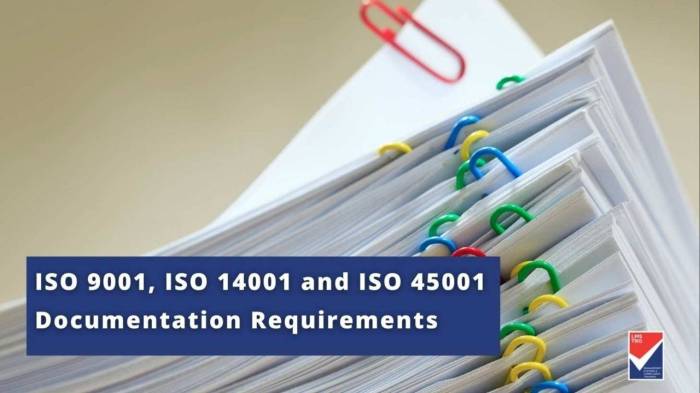Documented queries are to be retained for various reasons, including legal compliance, quality assurance, and research. This guide will provide an overview of the importance of retaining documented queries, the different methods available for retention, and the best practices for organizing and retrieving them.
Documented queries are a valuable asset for any organization. They provide a record of the questions that have been asked, the answers that have been given, and the decisions that have been made. This information can be used to improve the quality of service, identify trends, and make better decisions in the future.
Definition of “Documented Queries”

Documented queries refer to a formal and systematic approach to recording and preserving the details of database queries, their purpose, and the results obtained. It involves creating a structured record that captures the query text, the parameters used, the context in which the query was executed, and any relevant observations or insights.
Documenting queries is crucial in various contexts, including:
- Reproducibility:Allows other users to replicate the query and obtain the same results, ensuring transparency and accountability.
- Troubleshooting:Facilitates the identification of errors or inefficiencies in the query by providing a detailed record of its execution.
- Performance Optimization:Helps analyze query performance and identify areas for improvement by providing a historical record of query execution times and resource usage.
- Collaboration:Enables sharing of queries and knowledge among team members, fostering collaboration and reducing duplication of effort.
Types of Documented Queries
Documented queries can vary in their format and level of detail, depending on the specific context and purpose. Some common types of documented queries include:
- SQL Queries:Structured Query Language (SQL) queries used to retrieve or manipulate data from a database.
- API Queries:Queries made to an application programming interface (API) to access data or services.
- Search Queries:Queries used to search for information within a database or on the internet.
- Data Analysis Queries:Queries used to analyze and extract insights from data.
Retention of Documented Queries: Documented Queries Are To Be Retained

Documented queries should be retained for several compelling reasons. These queries provide valuable historical context, facilitate future reference, and have legal and compliance implications.
Benefits of Retaining Documented Queries
- Historical Context:Documented queries capture the specific details of a request, including the user, date, and search terms. This information provides a comprehensive record of past queries, allowing for analysis of trends, patterns, and user behavior.
- Future Reference:Retained queries can serve as a valuable resource for future research or problem-solving. By referencing previous queries, users can quickly identify similar issues and access relevant information without having to repeat the search process.
Legal and Compliance Implications
In certain industries and jurisdictions, retaining documented queries is a legal requirement. These queries may be used as evidence in legal proceedings or compliance audits to demonstrate that proper procedures were followed and due diligence was exercised.
Methods for Retaining Documented Queries

Implementing effective retention methods is crucial for preserving documented queries. This section explores various methods for retaining documented queries, discussing their advantages and disadvantages, and providing guidance on effective implementation.
Electronic Storage
Electronic storage involves using digital devices, such as computers, laptops, or servers, to store documented queries in electronic formats like text documents, spreadsheets, or databases. This method offers several advantages:
- Ease of Access:Electronic storage allows for quick and easy access to documented queries from any location with an internet connection.
- Search and Retrieval:Electronic storage enables efficient search and retrieval of specific queries using s or filters.
- Version Control:Version control systems track changes made to electronic documents, ensuring data integrity and allowing for the recovery of previous versions.
To effectively implement electronic storage, it is important to:
- Choose a reliable and secure storage solution.
- Establish clear naming conventions and file organization systems.
- Implement regular backups to prevent data loss.
Physical Filing, Documented queries are to be retained
Physical filing involves storing documented queries in hard copy format, such as paper documents or folders. While this method is less common in modern organizations, it may still be suitable for specific purposes:
- Legal Compliance:Certain industries or regulations may require the retention of physical copies of documents.
- Security:Physical filing can provide an additional layer of security, as documents are not accessible through electronic means.
To effectively implement physical filing, it is important to:
- Establish a secure and organized filing system.
- Use durable and acid-free materials to prevent deterioration.
- Implement regular audits to ensure compliance and data integrity.
Cloud-Based Solutions
Cloud-based solutions involve storing documented queries on remote servers accessed via the internet. This method offers several advantages:
- Accessibility:Cloud storage allows for access to documented queries from anywhere with an internet connection.
- Scalability:Cloud storage can easily accommodate growing data volumes without the need for additional hardware or infrastructure.
- Collaboration:Cloud-based solutions facilitate collaboration and document sharing among multiple users.
To effectively implement cloud-based solutions, it is important to:
- Choose a reputable and secure cloud storage provider.
- Establish clear access and sharing permissions.
- Implement regular data backups to ensure data recovery in case of outages or data breaches.
Each retention method has its own advantages and disadvantages, and the most suitable method will depend on the specific needs and requirements of the organization. It is important to consider factors such as accessibility, security, scalability, and compliance when selecting a retention method.
Access and Retrieval of Retained Queries
Organizing and storing documented queries effectively is crucial for their easy access and retrieval. Implementing a well-structured system ensures that authorized personnel can locate and retrieve specific queries promptly.
Indexing and Categorization
Indexing and categorizing retained queries is essential for efficient retrieval. Queries can be indexed based on various attributes, such as s, date range, query type, or project association. Categorization involves grouping queries into logical categories, such as customer support, product feedback, or technical issues.
This systematic organization allows for quick filtering and retrieval based on specific criteria.
Search Functionality
Optimizing search functionality is paramount for efficient query retrieval. Implementing a robust search engine with advanced search capabilities, such as matching, fuzzy search, and natural language processing, enables users to find relevant queries quickly. Additionally, providing options for sorting and filtering search results based on various criteria further enhances the retrieval process.
Security and Confidentiality Considerations

Preserving the security and confidentiality of documented queries is paramount to maintain data integrity and protect sensitive information.
Security Measures
- Implement robust access controls to limit access to authorized personnel only.
- Utilize encryption protocols to safeguard data at rest and in transit, ensuring data privacy.
- Establish clear security policies and procedures to govern the handling and storage of documented queries.
- Conduct regular security audits to identify and address potential vulnerabilities.
Confidentiality and Privacy
Queries often contain sensitive information, making it crucial to maintain confidentiality. This involves:
- Limiting access to authorized individuals with a legitimate need-to-know.
- Anonymizing or de-identifying data whenever possible to protect patient privacy.
- Complying with applicable privacy regulations and ethical guidelines.
Frequently Asked Questions
What is a documented query?
A documented query is a record of a question that has been asked, the answer that has been given, and the decision that has been made.
Why should documented queries be retained?
Documented queries should be retained for a variety of reasons, including legal compliance, quality assurance, and research.
What are the different methods for retaining documented queries?
Documented queries can be retained using a variety of methods, including electronic storage, physical filing, and cloud-based solutions.
How can documented queries be organized and retrieved?
Documented queries can be organized and retrieved using a variety of methods, including indexing, categorizing, and search functionality.
What are the security and confidentiality considerations for retaining documented queries?
Security and confidentiality are important considerations when retaining documented queries. Organizations should implement appropriate security measures to protect the privacy of sensitive information.